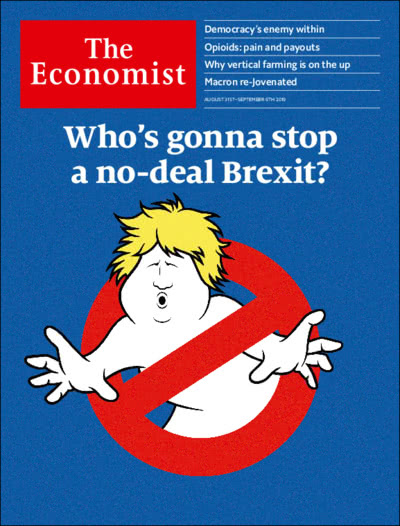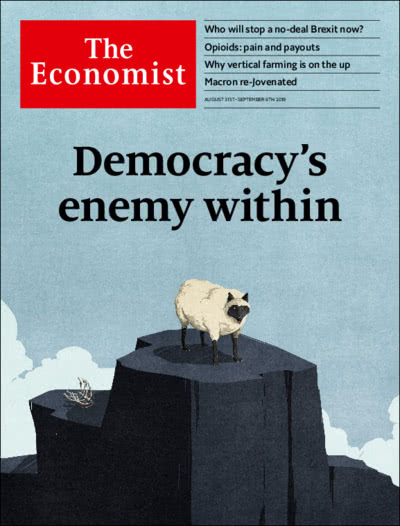|  | |  | |
| | |
| This week we have two connected covers. In Britain, where Boris Johnson has announced that he will suspend Parliament for five weeks from mid-September, we ask who can now stop a no-deal Brexit. The sense of inevitability about no-deal, cultivated by the hardliners advising Mr Johnson, is bogus. The European Union is against such an outcome; most Britons oppose it; Parliament has already voted against the idea. When MPs return to work next week, they will have a fleeting chance to avert an unwanted national calamity. Mr Johnson’s muzzling of Parliament has made clear why they must seize it.
Mr Johnson’s ploy is legal, but it stretches the conventions of Britain’s constitution to their limits. His scheming is just one example of the cynicism that is gnawing at Western democracies—and which is the focus of our cover in the rest of the world. Democracies are generally thought to die at the barrel of a gun, in coups and revolutions. These days, however, they are more likely to be strangled slowly in the name of the people. Old-established polities, such as Britain and America, are not about to become one-party states, but their democracy is already showing signs of decay. Once the rot sets in, it is formidably hard to stop. | |
|
|  Zanny Minton Beddoes, Editor-in-Chief Zanny Minton Beddoes, Editor-in-Chief | |
| | |
|
|
|












